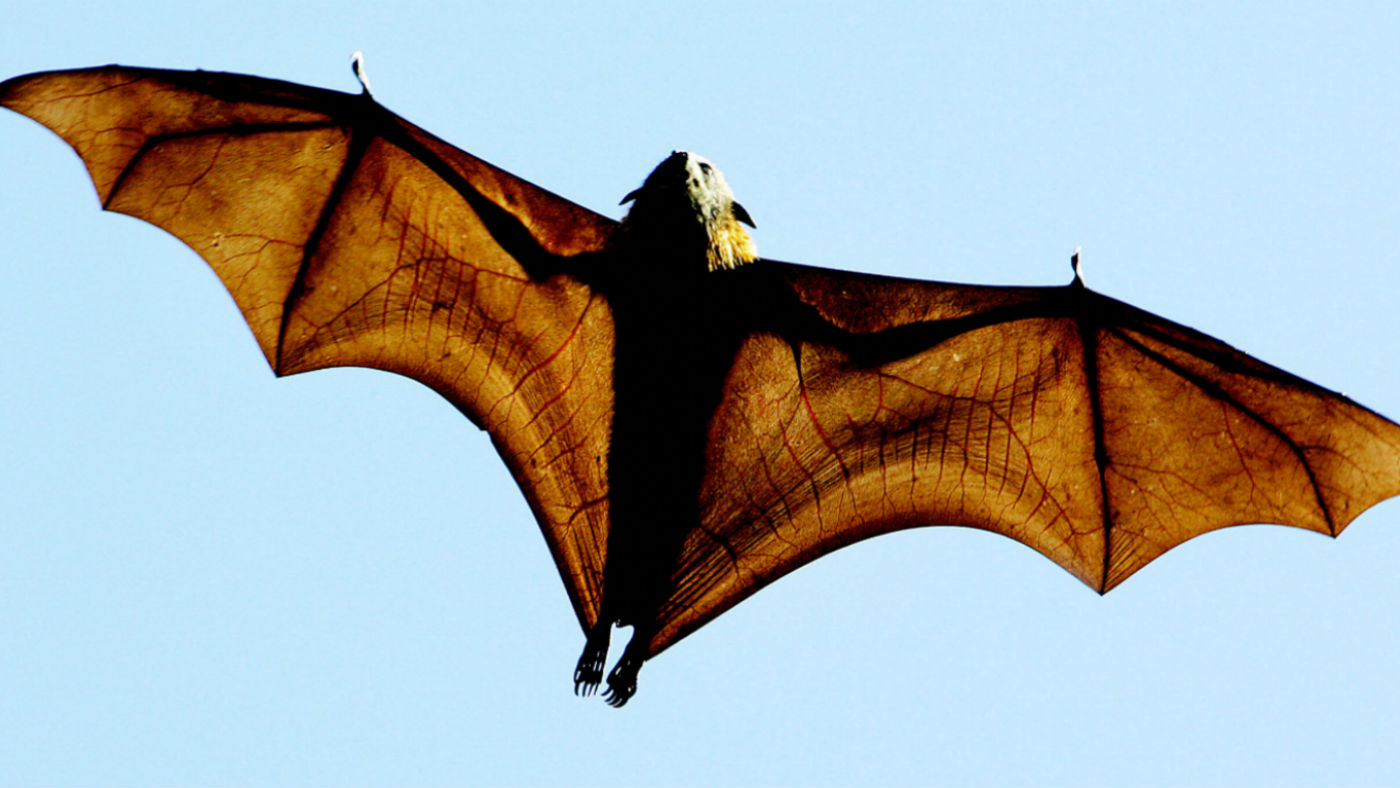Australian heatwave: bats falling out of trees as temperatures near 50C
Ecologist warns that bats are the ‘canary in the coal mine’ for effects of climate change on wildlife

A free daily email with the biggest news stories of the day – and the best features from TheWeek.com
You are now subscribed
Your newsletter sign-up was successful
Ecologists are warning that recent bouts of extreme heat in Australia risk decimating the country’s bat population.
In South Australia, temperatures have been “running 10 to 14 degrees above average” since the start of the week, says Adelaide Now. On Tuesday, the mercury peaked at 49C in the northern town of Tarcoola.
As well as causing discomfort for the state’s human residents, the intense heat is once again taking its toll on the bat population.
The Week
Escape your echo chamber. Get the facts behind the news, plus analysis from multiple perspectives.

Sign up for The Week's Free Newsletters
From our morning news briefing to a weekly Good News Newsletter, get the best of The Week delivered directly to your inbox.
From our morning news briefing to a weekly Good News Newsletter, get the best of The Week delivered directly to your inbox.
“Large colonies” have been seen falling to the ground after succumbing to heat stress in the Adelaide’s Botanic Park, home to around 17,000 bats, the ABC reports.
The state’s health department has warned residents not to touch “heat-stressed bats and pups”, which can carry dangerous diseases including the Australian bat lyssavirus, which causes rabies.
Ecologist Jason Van Weenen said that bats struggle to cope with temperatures above 40C, especially when young, and said the heatwave meant a “high likelihood of a significant number of pups dying over summer”.
Last November’s heatwave in Queensland had a devastating impact on the nocturnal mammals.
A free daily email with the biggest news stories of the day – and the best features from TheWeek.com
Researchers now believe that at least 23,000 spectacled fruit bats died - around one-third of the total population - over just two days in and around Cairns, where temperatures passed 42C.
Some locals were “forced to leave their homes due to the smell from thousands of rotting carcasses”, the ABC reports.
Over the same period, around 10,000 black flying foxes are thought to have succumbed to heat - and bat-watchers say that climate change predictions indicate that the situation is likely to worsen.
“Extreme heat events are increasing in frequency, also in terms of intensity and duration,” said Dr Justin Welbergen, president of the Australasian Bat Society and lead researcher into the effects of the November heatwave.
He added that bat species who roost in urban areas were only the most visible example of a more widespread impact on wildlife, and should be seen as “the canary in the coal mine for climate change”.
-
 What to know before filing your own taxes for the first time
What to know before filing your own taxes for the first timethe explainer Tackle this financial milestone with confidence
-
 The biggest box office flops of the 21st century
The biggest box office flops of the 21st centuryin depth Unnecessary remakes and turgid, expensive CGI-fests highlight this list of these most notorious box-office losers
-
 What are the best investments for beginners?
What are the best investments for beginners?The Explainer Stocks and ETFs and bonds, oh my
-
 Epstein files topple law CEO, roil UK government
Epstein files topple law CEO, roil UK governmentSpeed Read Peter Mandelson, Britain’s former ambassador to the US, is caught up in the scandal
-
 Iran and US prepare to meet after skirmishes
Iran and US prepare to meet after skirmishesSpeed Read The incident comes amid heightened tensions in the Middle East
-
 Israel retrieves final hostage’s body from Gaza
Israel retrieves final hostage’s body from GazaSpeed Read The 24-year-old police officer was killed during the initial Hamas attack
-
 China’s Xi targets top general in growing purge
China’s Xi targets top general in growing purgeSpeed Read Zhang Youxia is being investigated over ‘grave violations’ of the law
-
 Panama and Canada are negotiating over a crucial copper mine
Panama and Canada are negotiating over a crucial copper mineIn the Spotlight Panama is set to make a final decision on the mine this summer
-
 Why Greenland’s natural resources are nearly impossible to mine
Why Greenland’s natural resources are nearly impossible to mineThe Explainer The country’s natural landscape makes the task extremely difficult
-
 Iran cuts internet as protests escalate
Iran cuts internet as protests escalateSpeed Reada Government buildings across the country have been set on fire
-
 US nabs ‘shadow’ tanker claimed by Russia
US nabs ‘shadow’ tanker claimed by RussiaSpeed Read The ship was one of two vessels seized by the US military